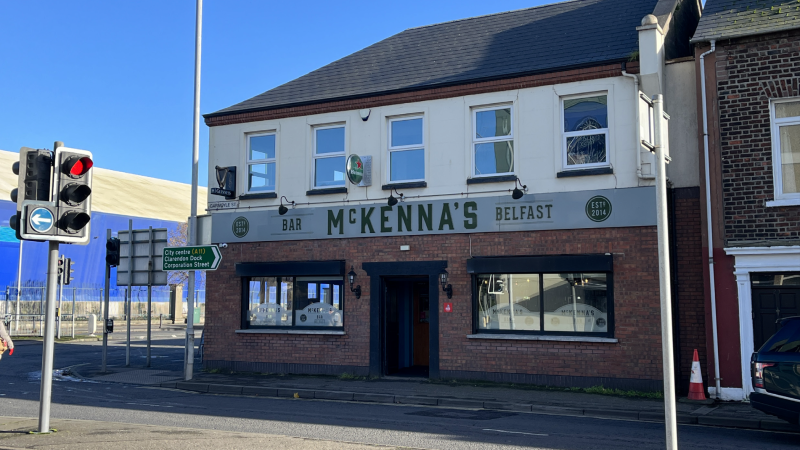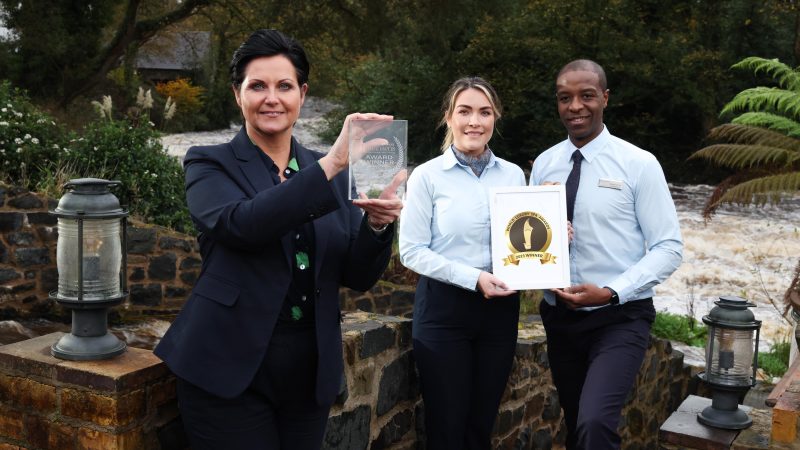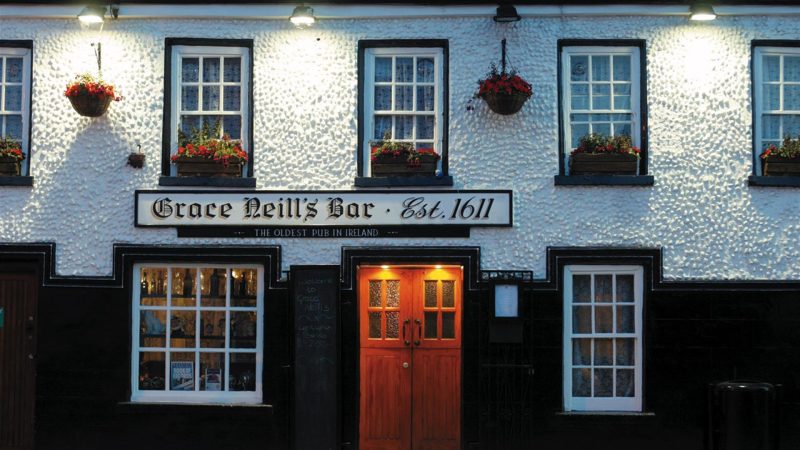Varying degrees of up…

A rising tide doesn’t always lift all the ships and so it is with the hospitality trade. Colin Neill has been talking to Russell Campbell about the economy, the effects of Brexit and continued concerns over taxation and the widening skills gap.
The emergence of a two-speed licensed trade in Northern Ireland has been a concern at least since the middle of 2015, when LCN’s own Pubs Perspective investigation unearthed evidence that while recovery was ongoing, it was far from complete – and far from uniform in its effect.
Since then, there has been plenty of anecdotal and statistical evidence to indicate that the while the trade in Belfast has been enjoying a welcome renaissance on the back of increased tourism and a weakened pound, operators outside Belfast and, to a lesser extent, Derry/Londonderry, have seen their businesses continue to struggle, particularly in the slack Monday to Wednesday period.
A rising tide, it seems, doesn’t lift all of the ships and when Hospitality Ulster chief, Colin Neill, spoke to LCN for his annual catch-up just before Christmas, he was able to confirm that “things are on the up, but it’s varying degrees of up…”
“Look at Belfast city centre where the hotels are all running at capacity and all up on previous years,” he added. “Then drive 20 miles in any direction and you’ll find people who aren’t up at all.”
Rising numbers of visitors to the province have helped sustain the trade in the capital while along the border, a weakened pound has helped counteract the adverse effects of the Republic’s more attractive VAT rate. Border venues are competitive again and trade that might have gone south 10 months ago is now staying in the province.
“Obviously, the challenge now is to extend the growth enjoyed by hospitality businesses in the city centre and the border areas into other parts of Northern Ireland,” added Colin. “There is a lot on offer. OK, it’s not on the same scale as Belfast, but there are lots of tourists who want to travel and see other parts of Northern Ireland and the questions is, how can we make more money from that?”
In terms of the other issues faced by the hospitality trade here, Colin flagged continued dissatisfaction with the existing small business rates relief scheme.
In conjunction with colleagues in the NI Independent Retail Trade Association (NIIRTA), Hospitality Ulster last year drew up proposals for radical reform of the system and in November, Finance Minister, Mairtin O Muilleoir unveiled proposals for a range of new measures based on the joint NIIRTA/Hospitality Ulster paper.
The measures would include replacing the small business rates relief scheme with a £22m fund for the small retail and hospitality sectors. There would also be a lifting of the £400,000 cap on domestic rates, an increase in rates for vacant business properties and a levy for charity shops.
“The existing small business rates relief scheme is no longer delivering and doing something else has been on the table for more than two years now,” Colin told LCN. “We are now one of the biggest employers in Northern Ireland, taking more money from tourism than anyone else and there are big opportunities for growth.
“This scheme represents value for the taxpayer and it ensures that those businesses which need help most with their rates bill will receive it.”
It is understood that the new scheme could be in place by April this year.

Despite the respite provided by the post-Brexit weakening of sterling, the differential between VAT rates in both halves of Ireland continues to be an issue in hospitality. Reform was on the agenda in December when Hospitality Ulster and NIIRTA met with Secretary of State, James Brokenshire and Colin indicated that lobbying on the issue is continuing.
“The challenge for us is that Westminster still controls this. The south of England is where the votes are at and tourism there is booming. They see no reason to change it, so no-one else will be getting it either. You can bet that if one of their near neighbours had a VAT rate of nine per cent, they would be changing our rate.”
Last year finally saw some movement in the long-running battle for reform in Northern Ireland’s liquor licensing regime. Yet most people in the trade were agreed that the proposals, which seek to normalise trading on the Thursday before Easter and offer an extra hour of trading on 12 nights in the year, don’t go far enough.
However, Colin Neill told LCN that he was hopeful of seeing the Easter issue “sorted out” and that an extra hour would be on offer to licensees on 104 nights in the year. He believes these provisions could be in place as early as July.
On another of 2016’s major issues, the pro-Brexit vote, Colin acknowledged the short-term gains for hospitality that flow from the weakened pound, but added:
“We can’t plan for the future based on predicting what a currency will do. We need to look at other issues such as access to labour. Migrants form a large part of our workforce here and if we lose them, we’re going to have a problem. We already have a skills gap.
“Also, for tourism, the movement of people is obviously key and even if the difficulties are only perceived, people will just fly into Dublin and avoid coming north. If they think they will need a visa or whatever, they just won’t come,” said Colin.
Shortage of skills has become a burning issue for operators in the local hospitality trade and Colin confirmed that he now believes we are at crisis level:
“If we don’t get the people with the skills we need, it could hamper the growth of the 30 or so hotels which are currently in the planning stages here,” he warned. “A lot of work has been done to challenge preconceptions of the industry. This isn’t the low-paid, long-hours culture that it’s been made out to be. Almost 45 per cent of the people working in our industry are classed as managerial or technical, so it’s about challenging the perceptions that people have and securing people with the right skills for the industry.”
Colin believes that when it comes to training, the further education sector in Northern Ireland focuses on the more lucrative disciplines to the detriment of those trades in which skilled staff are hard to find, and he says that a “radical rethink” of training provision in the industry is needed:
“”We also realise that as the trade body, we need to do something as well,” he added. “So we have tied in with Pearson, the UK’s largest vocational education provider, to offer more than 40 online skills qualifications in one place via our new app.”
The app, which is available now on iOS and android, is part of Hospitality Ulster’s Academy training initiative. It offers properly accredited qualifications in food, beverage and service and is designed to allow training to take place on the premises in many instances, thus reducing the costs.
Going forward, Colin said that he felt it was important for the NI Assembly to properly acknowledge hospitality and tourism as a key economic driver:
“Then they need to invest in us,” he added. “Someone once said to me that we were everyone’s friend and no-one’s family. Well, we are up for adoption, we come with a £1bn contribution to the economy and we can do a lot better with the right parents.”
Colin also said that taxation reform would be the best new year present that the Assembly could give the industry here:
“Rates and VAT are too high and in themselves, it would mean a seismic shift if these were properly aligned,” he went on. “After that, it’s really about government radically helping us to drive our own industry. This is a very good industry and we need them to stop holding us up so that we can make it a brilliant industry.”








